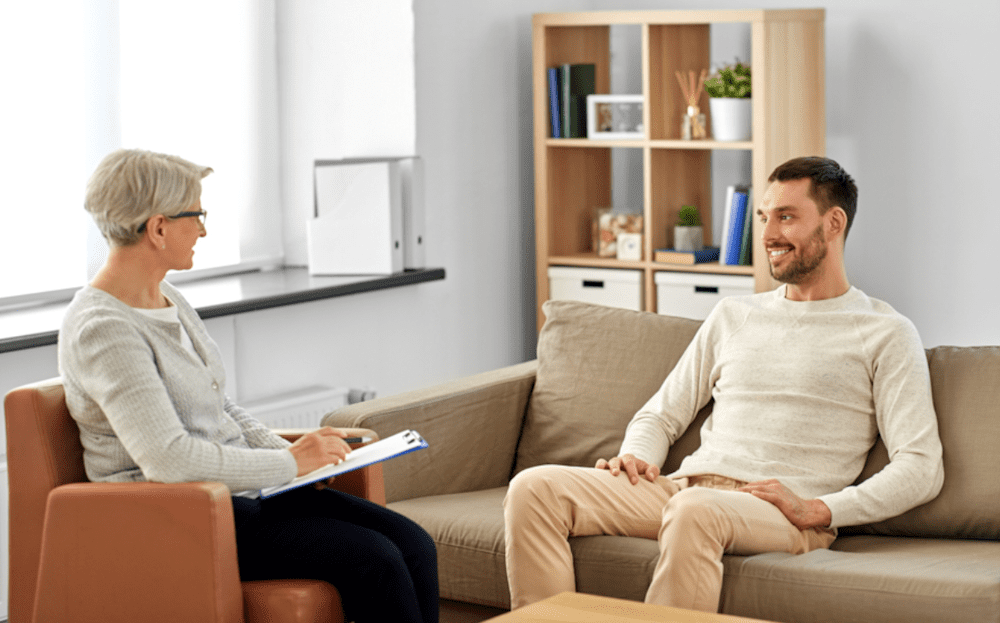Individual Therapy for Addiction Treatment
Many individuals in the state of Maryland struggle with substance use disorders (SUDs). Oftentimes, it’s difficult for someone to admit they have a problem and need treatment; for the individuals who can, seeking treatment is imperative to the addiction recovery process.
The best way to start your journey is to find addiction treatment centers that offer individualized treatment. Finding somewhere that offers individual therapy may mean the difference between successful addiction recovery outcomes and preventing the high chance of relapse. So, if you are looking for treatment for drug abuse in Maryland, allow us to help you here at The Freedom Center.
What is Individual Therapy?
Individual therapy for addiction is a type of psychotherapy that focuses on the individual’s psychological, emotional, and behavioral challenges. An individual therapy session happens in a private setting that involves only the patient and therapist. This one-on-one time enables people to receive effective treatment that focuses on their specific needs and experiences.
- Identify their triggers
- Build self-esteem and confidence
- Encourages people to maintain abstinence in recovery
- Develop coping strategies and skills to manage cravings or withdrawal symptoms
- Explore underlying issues that may have led to substance use
- Learn healthier ways of dealing with stress
How Does Individual Therapy Work?
The purpose of this one-on-one therapy is to identify and address issues that the person is currently facing, such as problems with mental health issues and addiction, such as PTSD.
During these sessions, the therapist uses various techniques to help the individual to better understand and process their issues. These techniques can include exploring experiences from the past, talking about current behaviors, setting goals for the future, learning relaxation skills, and more. Many therapists also offer cognitive-behavioral therapy (CBT) to help individuals change unhelpful thinking patterns and develop positive coping strategies.
Benefits of Individual Therapy
Some of the main benefits of individual sessions for the addiction treatment process include the following:
- It helps people make sense of challenging experiences.
- This therapy helps people learn how to manage stress.
- Individual therapy can help improve communication skills.
- People can learn new coping strategies in individual therapy.
- Individual therapy provides people insight into their behaviors and feelings.
- Individual counseling helps develop the skills to resolve conflicts with others.
- This type of therapy helps people develop self-confidence and a stronger sense of personal identity.
- One-on-one therapy does not take place in a group setting, which can make it more comfortable.
In individual therapy, people can explore their thoughts and feelings in a safe, supportive environment. This can help them gain clarity on difficult situations, develop new perspectives, and better understand themselves.
Through individual therapy, individuals can also learn how to effectively communicate with others and build meaningful relationships. Individual therapy can also help manage mental health issues such as depression, anxiety, trauma, and addiction. It can be effective in addressing difficult life transitions, such as bereavement, job loss, or relationship breakdowns.
By exploring these issues with a therapist, individuals can learn how to manage their emotions more effectively and cope with difficult situations. Ultimately, individual therapy can be an important tool for understanding oneself better and finding ways to lead a more meaningful, balanced life.
Types of Individual Therapy for Drug and Alcohol Rehab
Cognitive behavioral therapy (CBT): This type of individual counseling uses techniques such as cognitive restructuring and relaxation training to help people identify unhealthy thought patterns and replace them with healthier ones.
Dialectical behavior therapy (DBT): This type of individual counseling helps individuals regulate their emotions and cope with difficult situations.
Interpersonal psychotherapy (IPT): IPT focuses on addressing issues in relationships that may be contributing to symptoms.
Eye movement desensitization and reprocessing (EMDR): This therapeutic approach helps people process traumatic memories.
No matter which type of therapy is used, the goal remains the same: to empower individuals to make positive changes in their lives and develop strategies for managing their mental health. Therapeutic elements can help people can learn how to manage stress, overcome anxiety disorders and depressive disorders, and develop better relationships. With the help of a trained therapist, individuals can reach their goals and lead healthier lives.
Individual Therapy vs. Group Therapy for Drug and Alcohol Abuse
Both group therapy and individual therapy are effective methods for treating drug or alcohol use. But, they are different in a few ways. The main difference between these behavioral therapies is the setting in which they take place.
In general, group therapy takes place in a group setting. Individuals meet with other group members and one or more therapists to discuss various topics. In group therapy sessions, people receive peer support, develop healthy relationships with other recovering individuals, and develop interpersonal skills.
Individual therapy, on the other hand, takes place on a one-on-one basis. Sessions involve only two people (patient and therapist). This type of talk therapy might be a little less structured than group therapy in some cases.
Despite the differences between individual and group counseling, either can be an incredibly powerful therapeutic tool. They both can help people develop better communication skills, experience positive behavioral changes, overcome drug or alcohol cravings, and ultimately recover from addiction.
Individual Therapy FAQs
What is the History of Individual Psychotherapy?
When is it Best to Seek Therapy?
What Should I Expect During Individual Therapy Sessions?
- Identify their problems
- Build better coping strategies
- Explore and understand their feelings
- Improve communication skills and relationships
- Develop a more positive outlook on life






























